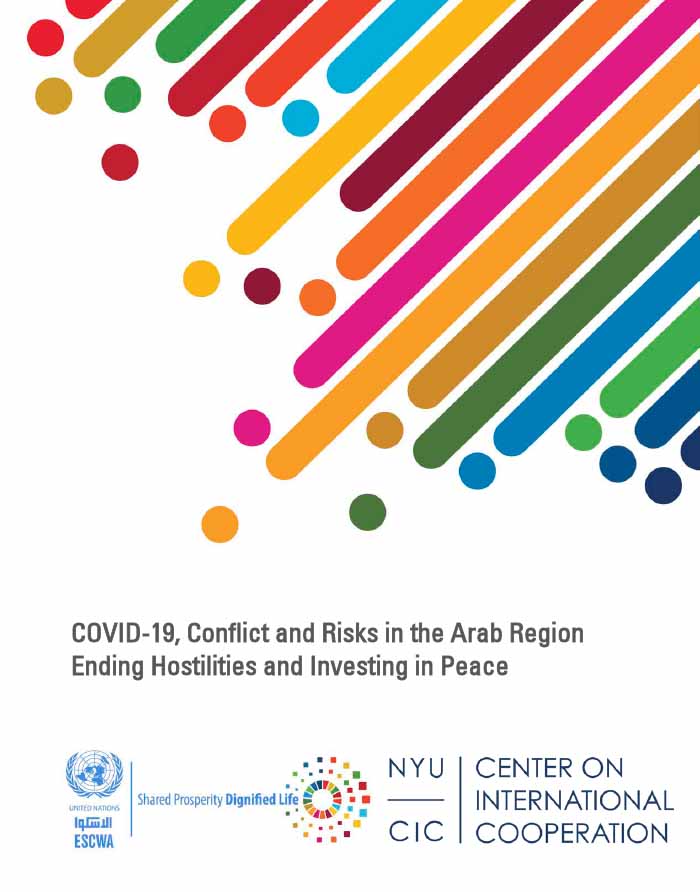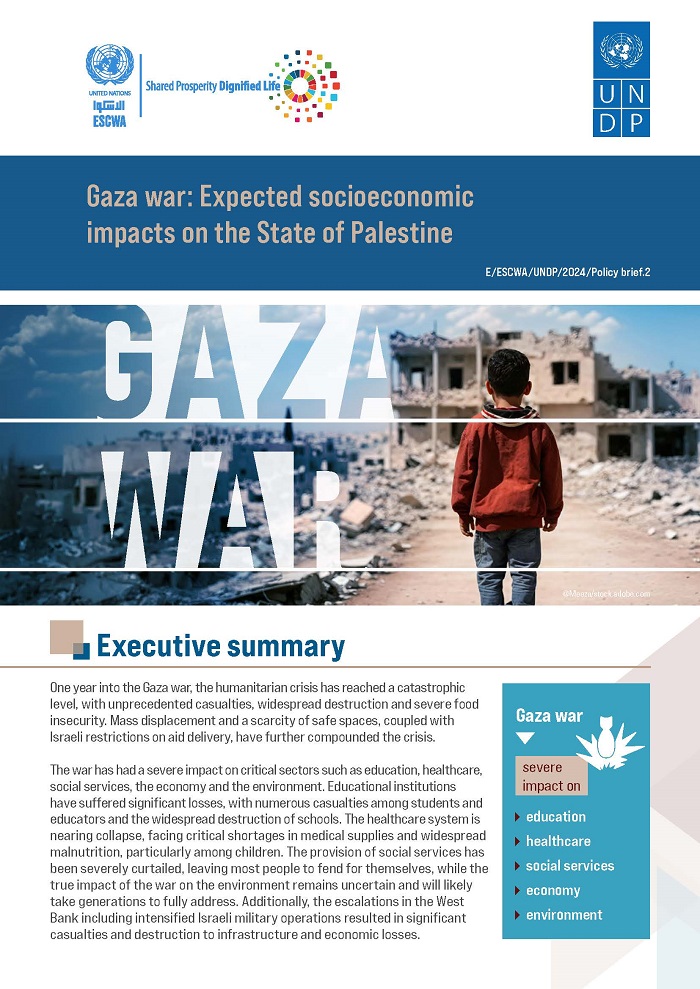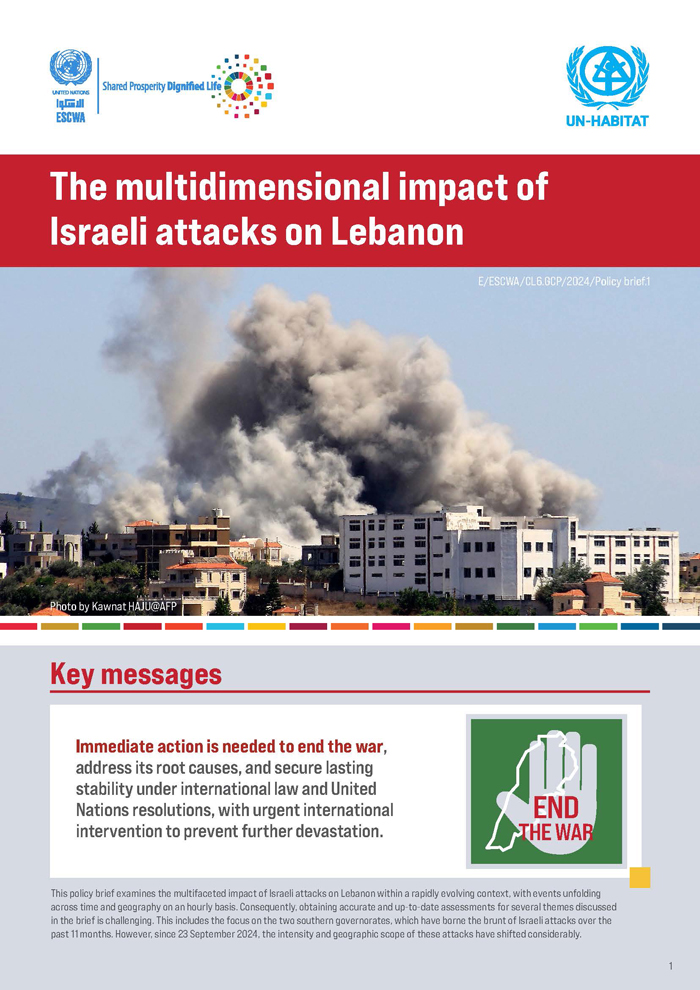
ESCWA Publication: E/ESCWA/CL6.GCP/2020/TP.6
Country: Arab region
Publication Type: Working papers
Cluster: Governance and Conflict Prevention
Focus Area: 2030 Agenda
Initiatives: Governance and institution building
SDGs: Agenda 2030
Keywords: Covid-19, Peace, Risk, Conflict, Viruses
COVID-19, conflict and risks in the Arab region: Ending hostilities and investing in peace
December 2020
Years of conflict or occupation have eviscerated Arab conflict affected countries’ social contracts, shattered their economies, amplified their household food insecurity, devastated their health systems, degraded their infrastructure, and uprooted and traumatized their populations. For these reasons, the call from the United Nations Secretary-General for a global humanitarian truce in March 2020, and its subsequent endorsement by the Security Council through resolution 2532 (2020) on 1 July 2020, is of paramount importance.
Amidst the second wave of the COVID-19 Pandemic, the exigency of a ceasefire in mitigating violence is ever more critical. Thus far, levels of conflict in the region remain mostly unchanged, with intermittent spikes of violence. The international community must act swiftly to halt the bloodshed, contain the virus, and pave the way toward an enduring peace. In particular, it must intervene in a concerted, coherent fashion across peacebuilding, development, and humanitarian sectors to confront the dual conflict-COVID-19 crisis engulfing the region, without losing sight of other risks such as climate change, water scarcity, high unemployment, and food insecurity, among others. It should support the strengthening of inclusive and accountable local and national institutions and governance structures capable of dealing with different types of current and future shocks.
Related content
2030 Agenda
,
Years of conflict or occupation have eviscerated Arab conflict affected countries’ social contracts, shattered their economies, amplified their household food insecurity, devastated their health systems, degraded their infrastructure, and uprooted and traumatized their populations. For these reasons, the call from the United Nations Secretary-General for a global humanitarian truce in March 2020, and its subsequent endorsement by the Security Council through resolution 2532 (2020) on 1 July 2020, is of paramount importance.
Amidst the second wave of the COVID-19 Pandemic, the exigency of a ceasefire in mitigating violence is ever more critical. Thus far, levels of conflict in the region remain mostly unchanged, with intermittent spikes of violence. The international community must act swiftly to halt the bloodshed, contain the virus, and pave the way toward an enduring peace. In particular, it must intervene in a concerted, coherent fashion across peacebuilding, development, and humanitarian sectors to confront the dual conflict-COVID-19 crisis engulfing the region, without losing sight of other risks such as climate change, water scarcity, high unemployment, and food insecurity, among others. It should support the strengthening of inclusive and accountable local and national institutions and governance structures capable of dealing with different types of current and future shocks.


